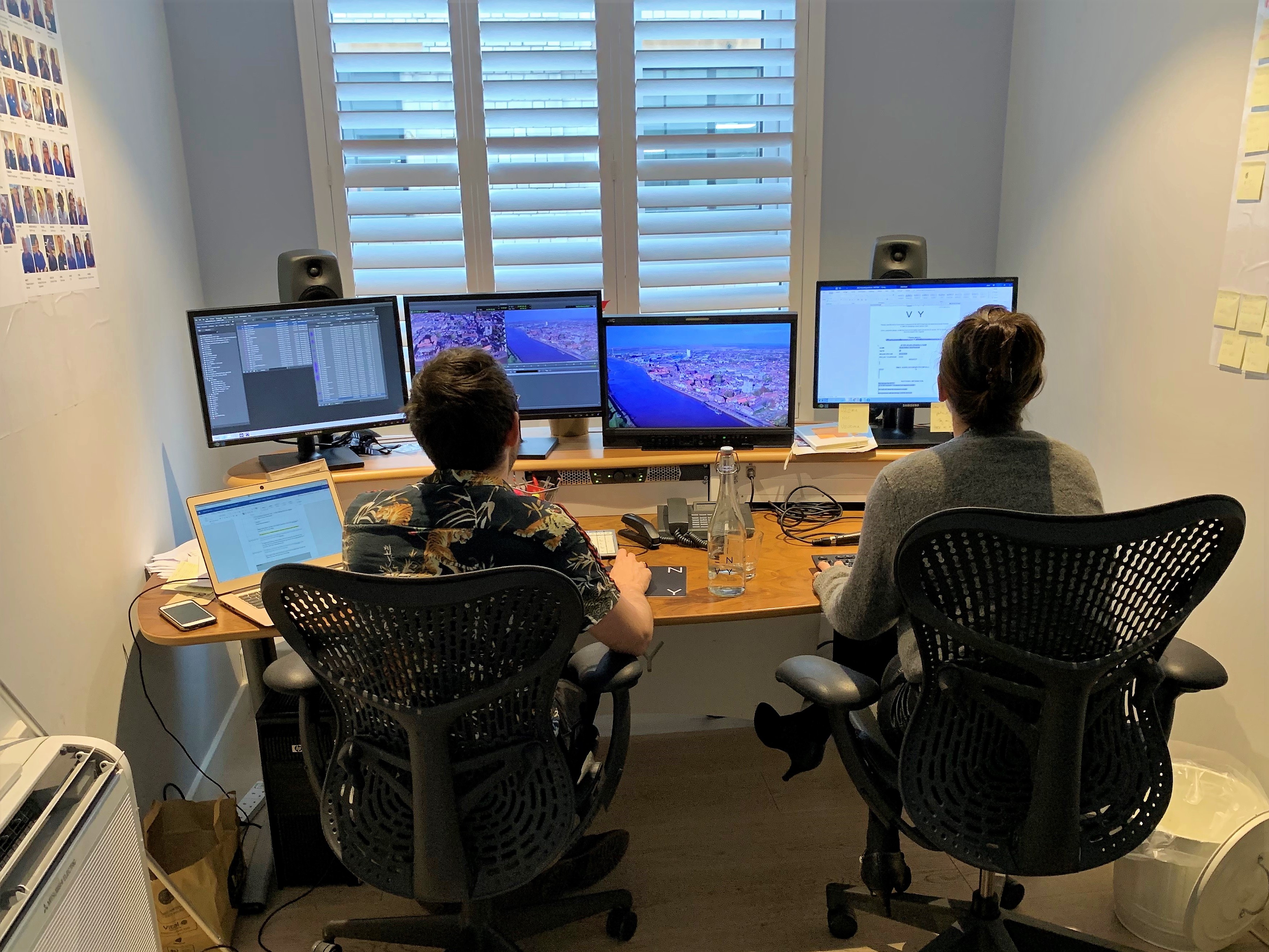Celine Gilbert is an Edit Director / Senior Edit Producer & Series Producer. She wrote us this rather foolproof and insightful guide for anyone new to (or perhaps anxious about) the edit. Go on, bookmark this link before you forget. You’re welcome…
- KNOW YOUR MATERIAL
You can never know your material well enough. Ask for logs, if you don’t get them, log your interviews yourself. It’s a massive investment of time and effort at the start of an edit but it pays off at 11pm, the night before a viewing when you are desperately looking for a concluding thought to a sentence.
The big advantage of being an edit producer is that you are a fresh pair of eyes on the material. The director might remember a scene being hilariously funny, but when you watch it you realise that – like a badly told joke – you had to be there.
- EDITORS ARE STRANGE SPECIES
Editors can be tricky. Remember, they do this job day-in, day-out. You may have some variety to your year (going out on shoots perhaps or working in development), editors go from project to project and are constantly expected to pull the long hours required to get each one out the door.
Some editors are a bit snooty about working with edit producers, so you might find yourself having to prove your worth. It’s a partnership, but it’s always good to set targets like: we need to have a very rough assembly by the end of the week. Generally editors tend to go easy at the beginning, and knuckle down in week three.
- STORY, STORY, STORY
Your first job is to work out your overall story then set-about telling it. What happens and why? This will give your edit direction.
For any scene in any programme, the question you must ask yourself is “how does this scene move the overall story I am telling, forward?” If it doesn’t move the story forward or repeats something you’ve already said it shouldn’t be in.
Write your scenes on individual post-it notes and stick them on the wall. You can move scenes about easily to see how your parts and overall structure are working. You can also work out which ones are your priority scenes (the ones that pivot the story) and start looking at them to make sure they are working.
- KILLER COMM
It is never too early to start writing commentary. The sooner you start, the sooner you will find out if you have problems with the overall narrative. In the first week of the edit, I write a pre-title or the opening scene. That way, I can nail the overall story I am trying to tell. If I can’t tell the story easily, chances are the concept has been poorly conceived of.
Commentary is hard to write; really hard. Like everything it comes with practice and gets easier over time. A good way to teach yourself is to watch the type of programmes you are working on and write down all the commentary, looking at when and how it is used to tee-up sync or to lead the audience through the story.
- YOU NEED A THICK SKIN
From commissioners who don’t know what they want to grumpy editors, you will have to deal with the full spectrum of bad behaviour. Do your best, get advice and remember it’s only telly. Fight for what you believe in – but know when to admit defeat.
- VIEWINGS
Always keep detailed notes of your viewings and type them up. It can help helpful to send a “notes addressed” document back to the Series Producer; Exec or Commissioner, depending on who is doing your viewing.
If someone makes a comment that is vague and unclear, ask them to be specific. “Just make it less shit” is not a helpful note.
By the way, most people tend to over-react in viewings. Only very experienced people can watch a rough-cut without freaking out, knowing it will be fine once it’s finished. I find people have incredibly high expectations of first rough-cut viewings and they panic when it feels simple and lacking nuance. They forget that editing is a process; you start simple and build a story up in layers, which takes time.
- LIMIT YOUR ONLINE SHOPPING
Just because your editor is sync pulling does not give you carte blanche to go shopping for the afternoon. If you want an editor’s respect, ask if there’s anything you can do to help. Can you do music searches? Can you paper-edit another actuality scene.
- THERE IS ALWAYS A SOLUTION
There is always a solution whatever the problem; you just need to find it. In extreme situations it can mean re-shooting a scene or re-structuring; sometimes it means being creative with cutaways because a sequence has been badly shot. Always look for the solution and if you can’t find one – keep looking.

